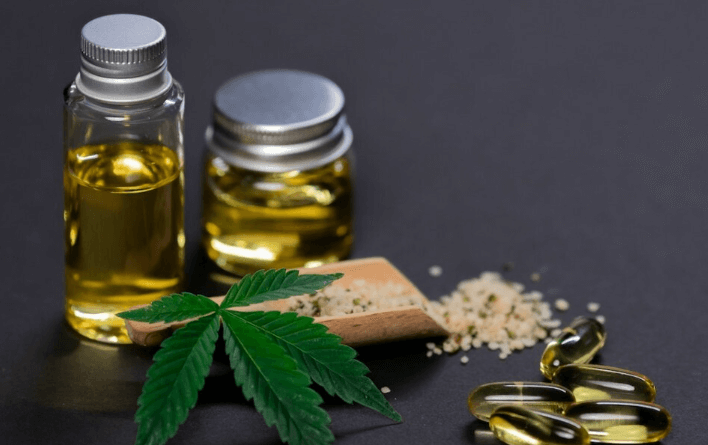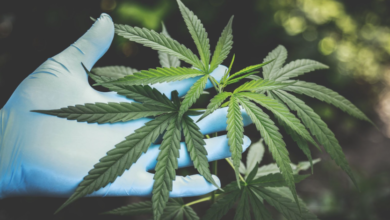Is Cbd Legal in Georgia 2024

As of 2024, the legality of CBD in Georgia hinges on its derivation from hemp and compliance with both state and federal regulations, particularly those outlined in the 2018 Farm Bill. While CBD remains accessible, the nuances of state laws regarding possession, distribution, and medical use present a complex landscape that users and retailers must navigate. Understanding these regulations is essential for anyone considering the use or sale of CBD products. However, the evolving nature of legislation raises important questions about future developments and potential changes that could impact this market significantly.
Overview of CBD Legislation
The legal landscape for cannabidiol (CBD) in Georgia has evolved significantly, reflecting a complex interplay of state and federal regulations aimed at regulating its production, distribution, and use.
As awareness of CBD benefits rises, so too do misconceptions and CBD myths that obscure its potential.
Understanding the legal framework is essential for consumers seeking to explore CBD’s therapeutic properties responsibly and knowledgeably.
See also: How Old Do You Have to Be to Buy Cbd Gummies
Federal Vs. State Laws
The legal landscape surrounding CBD in the United States is characterized by a complex interplay between federal regulations and state-specific laws.
At the federal level, the 2018 Farm Bill legalized hemp-derived CBD, yet individual states like Georgia have enacted their own frameworks that can either align with or diverge from federal standards.
Understanding these distinctions is crucial for consumers and businesses navigating the legalities of CBD in Georgia as of 2024.
Federal Regulations Overview
Understanding the intricate relationship between federal and state laws is crucial for navigating the legal landscape surrounding CBD in Georgia as of 2024.
Federal enforcement challenges persist amid evolving CBD research developments, creating a complex framework that impacts regulatory compliance.
As state laws diverge, individuals and businesses must remain vigilant, ensuring adherence to both federal guidelines and state-specific regulations for CBD products.
Georgia State Laws
Navigating Georgia’s state laws regarding CBD requires careful consideration of how they align with or differ from federal regulations, as discrepancies can significantly impact legal compliance for consumers and businesses alike.
The state’s legal history reflects ongoing tensions between state-level legalization and federal oversight, prompting CBD advocacy groups to champion clearer, more cohesive regulations that support freedom and accessibility for all stakeholders involved.
Types of CBD Products
A diverse array of CBD products is available in Georgia, catering to various consumer preferences and therapeutic needs.
Popular CBD product types include oils, capsules, edibles, and topicals, each offering unique benefits.
These products are derived through various CBD extraction methods, such as CO2 extraction and ethanol extraction, ensuring a range of potencies and formulations to suit individual lifestyles and health goals.
Medical Use of CBD
The medical use of CBD in Georgia is governed by specific qualifying medical conditions that patients must meet to obtain legal access.
Understanding the registration requirements and the process involved is essential for those seeking to benefit from CBD for therapeutic purposes.
This framework not only ensures compliance with state regulations but also facilitates patients’ navigation through the legal landscape of medical cannabis.
Qualifying Medical Conditions
Qualifying medical conditions for the use of CBD in Georgia encompass a range of ailments, highlighting the substance’s potential therapeutic benefits in managing chronic pain, seizure disorders, and various neurological conditions.
Patient eligibility is determined by specific diagnoses, enabling access to CBD’s benefits for those suffering from debilitating health issues.
This framework promotes informed patient choice in exploring alternative treatment options.
Registration Requirements Process
Navigating the registration requirements for medical use of CBD in Georgia involves a structured process that ensures only eligible patients can access these therapeutic options.
Key registration benefits include legal access to CBD products and protection under state law.
The application timeline typically spans several weeks, necessitating thorough documentation of qualifying conditions to facilitate a smooth transition into legal medical CBD use.
Retail and Distribution Regulations
Retail and distribution regulations for CBD products in Georgia are evolving, necessitating compliance with both state laws and federal guidelines to ensure legal operation within the marketplace.
As the CBD market trends shift, businesses face distribution challenges such as navigating complex legal frameworks and ensuring product safety.
Adherence to these regulations is crucial for fostering a competitive and responsible CBD industry in the state.
Possession and Personal Use
In Georgia, the possession and personal use of CBD products are governed by specific legal parameters that delineate acceptable quantities and formulations, ensuring compliance with both state and federal laws.
As CBD usage trends continue to evolve, consumer safety remains paramount.
Individuals must remain informed about permissible limits to utilize these products responsibly while avoiding potential legal complications associated with non-compliance.
Future of CBD in Georgia
The future of CBD in Georgia is poised for significant transformation as evolving legislation and increasing consumer demand create new opportunities and challenges within the market.
Anticipated CBD market growth will necessitate robust consumer education initiatives, empowering individuals to make informed choices.
As regulations adapt, stakeholders must navigate this dynamic landscape, ensuring compliance while fostering innovation that respects personal freedom and promotes responsible consumption.
Conclusion
In conclusion, the legal framework surrounding CBD in Georgia as of 2024 reflects a complex interplay between federal and state regulations.
Understanding the nuances of possession, distribution, and medical use remains essential for compliance.
As ongoing legislative developments continue to shape the landscape, what implications might these changes have for consumers and businesses alike?
The future of CBD in Georgia hinges on the ability to navigate this evolving legal terrain while ensuring safe and responsible access to these products.




